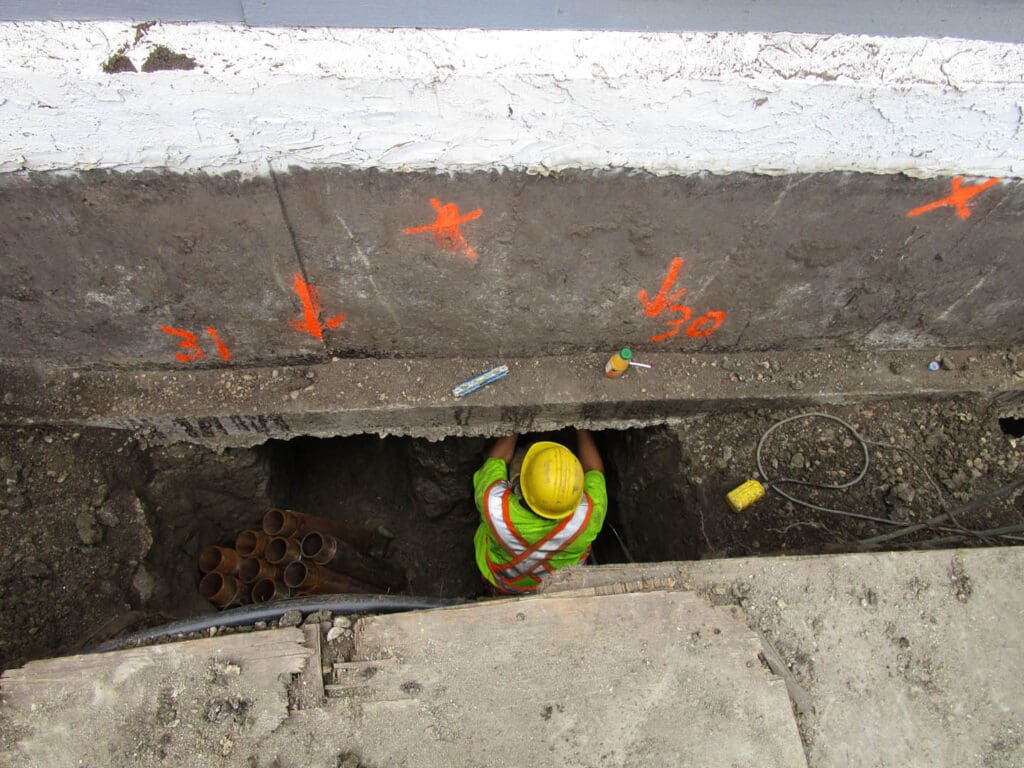How basement waterproofing affects home insurance rates and coverage options
Home insurance rates and coverage options can be significantly impacted by proper basement moisture protection measures. As a trusted foundation repair and waterproofing company since 1989, Abarent Construction provides basement waterproofing solutions in Edmonton that help homeowners secure better insurance terms. Professional waterproofing services create documented evidence of preventive measures that insurance companies value during policy assessments.
Key Takeaways About Basement Waterproofing Insurance Effects
- Professional waterproofing installations reduce annual home insurance premiums by demonstrating proactive protection measures.
- Insurance companies require detailed documentation of waterproofing systems to validate coverage discounts.
- Certified moisture prevention inspections increase property valuations during real estate transactions.
- Previous water damage claims affect future insurance coverage unless proper waterproofing is installed.
- Different waterproofing methods receive varying levels of risk assessment ratings from insurers.
- Regular maintenance records of waterproofing systems help maintain lower insurance rates.
- Professional waterproofing warranties provide additional insurance coverage benefits.
Professional Moisture Prevention Systems Increase Property Market Value
Professional moisture control systems add measurable value during property assessments through documented protection. Expert basement waterproofing contractors provide certification that real estate agents reference when determining listing prices. Property inspectors evaluate moisture prevention installations based on industry standards and give higher valuations to homes with proper documentation. Certified moisture control systems often become key selling points that justify premium market prices.
Certified Inspectors Validate Long Term Protection Solutions
Licensed moisture protection inspectors must maintain current industry certifications to provide valid assessment reports. Insurance companies typically require updated inspection documentation every 12-24 months to maintain coverage benefits. Advanced moisture analysis tools help certified inspectors detect potential issues before they affect coverage. Professional assessment reports follow standardized formats that meet insurer validation requirements for continued policy benefits.
Essential Components of Professional Waterproofing Systems
- Interior drainage systems collect and redirect groundwater
- Exterior membrane waterproofing prevents moisture penetration
- Sump pump systems automatically remove collected water
- Wall crack injection repairs seal existing foundation leaks
- Vapor barriers control moisture migration through walls
- Dehumidification systems manage indoor humidity levels
Basement Waterproofing Investments Lower Annual Insurance Premiums
Quality waterproofing installations typically reduce yearly insurance costs by 15-25 percent through documented risk reduction. Professional waterproofing membrane systems qualify for maximum premium discounts when properly certified. Insurance providers reassess coverage rates within 30-60 days after waterproofing completion. Written certification from licensed contractors provides necessary proof for insurance premium reductions.
Why Do Insurers Reward Preventive Protection Measures
Insurance companies calculate specific risk reduction values for different types of waterproofing protection. Regular waterproofing system maintenance records help maintain coverage discounts over time. Protection system certifications must meet minimum industry standards to qualify for insurance benefits. Insurance evaluators review maintenance documentation during annual policy renewals.
Moisture Damage Claims Affect Policy Coverage Terms
Previous water damage claims often restrict future coverage options without proper remediation measures. Professional basement waterproofing installations prevent claim denials through documented protection. Multiple moisture-related claims typically trigger coverage limitations for 3-5 years. Detailed repair and prevention documentation helps restore full coverage options more quickly.
Which Policy Exclusions Should Homeowners Watch For
Standard policies exclude gradual water damage from poor maintenance or neglected repairs. Professional waterproofing prevents mold and air quality issues that void coverage. Structural damage from long-term moisture exposure often faces coverage restrictions. Regular maintenance documentation helps prevent coverage exclusions based on negligence claims.
Basement Waterproofing Methods Impact Insurance Risk Assessment
Different waterproofing techniques receive varying risk ratings based on proven effectiveness. Professional waterproofing solutions provide better insurance benefits than DIY methods. Maintenance schedules must meet manufacturer specifications to maintain low risk ratings. Insurance evaluators assess waterproofing quality through industry-standard testing methods.
Understanding Long Term Coverage Implications
Modern waterproofing systems provide coverage benefits for 15-25 years with proper maintenance. Extended warranties from certified contractors support continued insurance coverage terms. Annual inspection records ensure coverage renewal eligibility. Protection system longevity affects long-term insurance rate calculations.
Abarent Construction offers comprehensive basement waterproofing services in Vancouver and Edmonton that help homeowners secure better insurance rates. Professional installations include detailed documentation and warranties that insurance companies require for premium discounts and coverage benefits.
